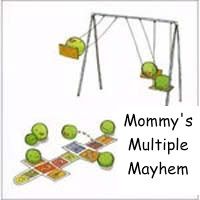skip to main |
skip to sidebar
Infant Care: Preventing Food Allergies
As a Mom with several kids who have long lists of allergies, its important to be wary of the possibility of allergic triggers early on in life. Some babies are sensitive to certain foods. Therefore, when introducing a new food to your baby, offer one new food at a time. Wait 3-5 days before offering the next new food. During this time, watch for these reactions: rash, wheezing, diarrhea, or projectile vomiting. If you notice a reaction, inform your health care provider, and do not feed your baby that food until she is a year old. Most babies outgrow these reactions once their digestive and immune systems mature.
Before the age of 1, it is best to avoid foods that often cause food sensitivities, especially if there are food allergies in your family. These foods include: - Strawberries
- Fish and shellfish
- Peanut butter and nut butters
- Peanuts, tree nuts, and seeds
- Tomatoes
- Egg whites
- Chocolate
- Citrus fruits and juices (orange, grapefruit, lemon, lime, kiwi, pineapple)
- Wheat (before 6 months)
- Honey (the bacteria in honey can make a baby very sick)
Although any child can develop a food allergy, the risk is higher in families who have food allergies. In an attempt to prevent food allergy in high-risk infants, the American Academy of Pediatrics recommends exclusive breastfeeding for at least six months, and for nursing mothers to avoid allergens, such as peanuts and tree nuts. Delay the introduction of all dairy products (milk, cheese, yogurt) for one year, eggs for two years, and peanuts, tree nuts and fish for three years. Ask your child's doctor for more information, or contact the Food Allergy and Anaphylaxis Network at www.foodallergy.org or 1-800-929-4040.








Ask your pediatrician about this as well. Babies can have different body conditions and allergies. But yes, they really are prone to these so be careful.
ReplyDelete-Leighlie Ashton